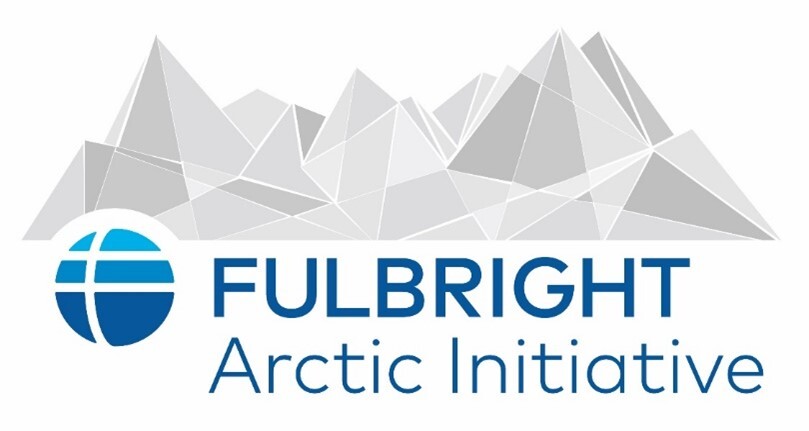
- COMPETITION CLOSED
- Accepting Applications for activities that commence in Fall 2024
and conclude in Spring 2026 - Applications Accepted until March 1, 2024
- Details on the competition for Fulbright Arctic Initiative V will be released in Fall 2026
US$40,000 for 18 months
Application Deadline: March 1, 2024
Candidates Notified: May 2024
Grant Activities Begin: September 2024
Grant Activities Conclude: April 2026
Iman Abdulmoneim Program Officer, Recruitment
Program webinar featuring Co-Lead Scholars on January 31, 2024, 11am ET: Fulbright Arctic Initiative IV Application Walkthrough
The Fulbright Arctic Initiative creates a network to stimulate international scientific collaboration on Arctic issues while increasing mutual understanding among the people of the Arctic Council member states. Using an interdisciplinary, collaborative model to translate theory into practice, program participants will spend 18 months engaged in addressing public policy research questions relevant to Arctic nations' shared challenges. Approximately 19 outstanding scholars (at least 4 from the U.S. and at least 1 from each of the other seven Arctic Council member states) will be selected to participate in the program as Fulbright Arctic Initiative Scholars through an open, merit-based competition.
Academic researchers in the physical, natural, social, and health sciences, Indigenous and local knowledge holders, professionals in the fine arts and liberal arts as well as practitioners working in various disciplines are encouraged to apply.
Co-Lead Scholars Dr. Elizabeth Rink and Dr. Lill Bjørst will provide intellectual leadership throughout the Program, in addition to mentoring program participants and facilitating discussion and collaboration among the Fulbright Arctic Initiative Scholars.
Program activities will commence in September 2024 and conclude in Spring 2026. All grantees are expected to attend three in-person meetings, complete an academic residential exchange, participate in monthly webinars, collaborate in interdisciplinary thematic groups, and maintain ongoing virtual communication with fellow grantees and lead scholars. Canadian scholars will complete a research visit to the United States for a minimum of six consecutive weeks and a maximum of three consecutive months (starting October 2024 and to be completed by January 2026).
September 8-14, 2024 - Opening Group Meeting (Norway)
June 2025 - Mid-year Group Meeting (TBD)
April 2026 - Final Group Meeting (Washington, DC)
The Fulbright Arctic Initiative will provide a platform for scholars from around the Arctic circle to engage in collaborative thinking, analysis, problem-solving and multi-disciplinary research.
Scholars participating in the program will attend a virtual pre-departure orientation in June. The program will officially begin with an in-person opening group meeting in Norway. During this meeting, the Co-Lead Scholars and research teams will have the opportunity to collaborate on projects and establish guidelines and goals before starting their individual exchanges.
Throughout the program, the research teams will collaborate virtually using an online platform under the guidance of the Co-Lead Scholars. At a mid-year meeting, the entire cohort will come together to share progress and preliminary outcomes.
The program will conclude with a third and final meeting in the United States, where the Fulbright Arctic Initiative Scholars will present the results of their collaborative work. They will also report on the achievement of program objectives and discuss the local, national, and/or regional implications of their findings. During this meeting, scholars will share policy-relevant recommendations, describe the steps they have taken to implement their projects and models, and discuss strategies for turning their recommendations into practice.
Program deliverables include group work and individual activities:
A. Group Work
1. White Paper – January 2026
2. Policy Brief – February 2026
3. Community Listening Sessions – December 2025
4. Manuscript for Publication – April 2026
B. Individual
1. Research Exchange Visit (1.5-3 months) – Between October 2024 and January 2026 (all exchange visits must be completed by January 2026)
2. Individual Exchange Report – due February 2026
3. Poster for public exhibition – due February 2026
In addition to the multitude of professional development benefits that come with participation in this cohort program, Fulbright Arctic Initiative Scholars will receive grant funding in the amount of US $40,000 to support their international travel to all in-person program meetings and maintenance for the individual exchange visit, research materials and assistance for grantees only. Lodging and meals for all group meetings will be covered separately.
Scholars will be provided ASPE health benefits for the periods of their exchange visits and their attendance at the three international program meetings. Participating scholars should maintain any additional personal primary health insurance coverage they may have for the duration of the program.
The Fulbright Arctic Initiative is a program of the US Department of State, Bureau of Educational and Cultural Affairs (ECA).



